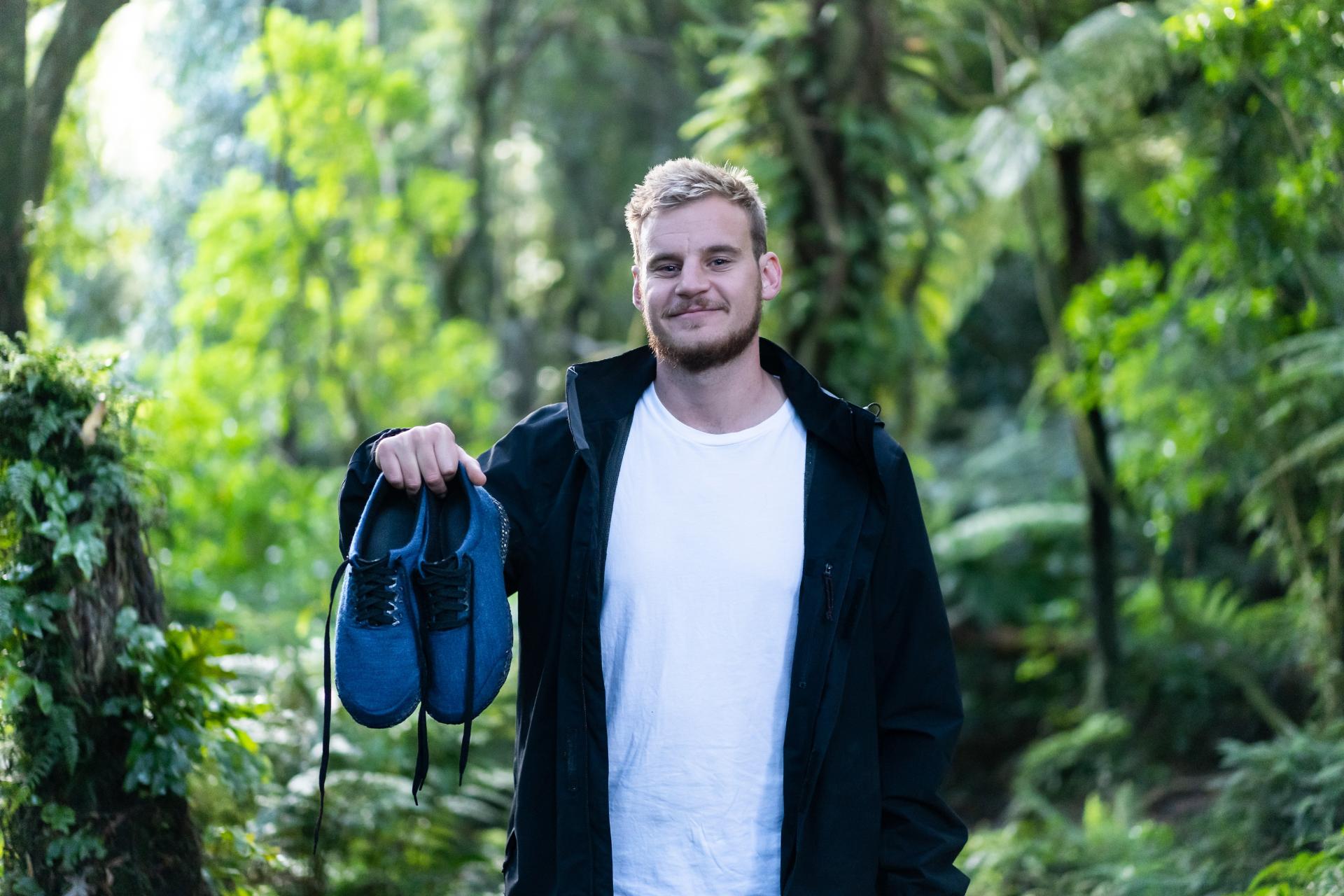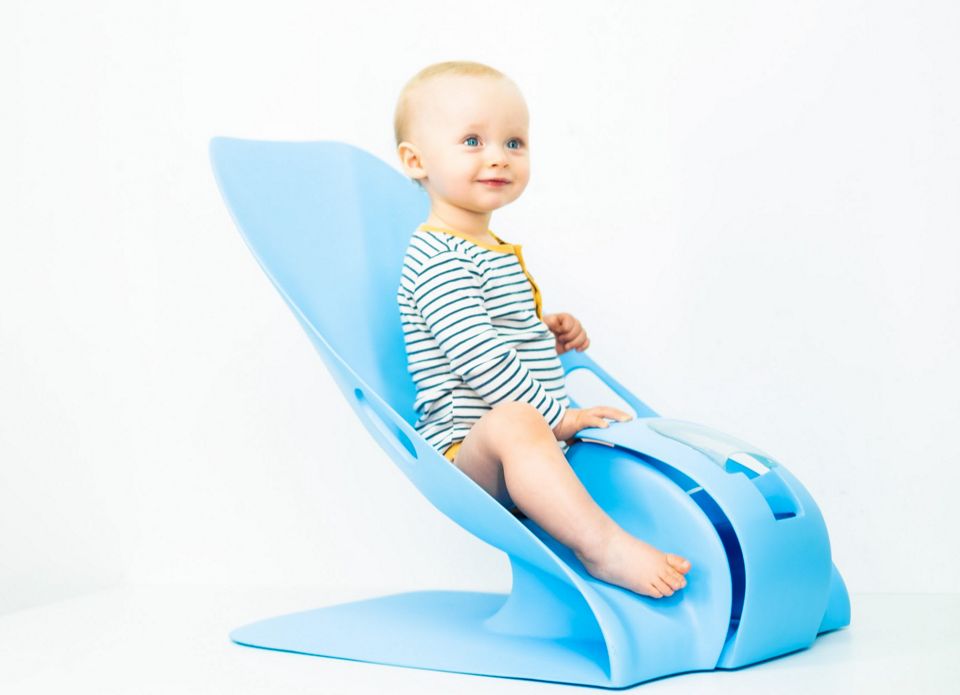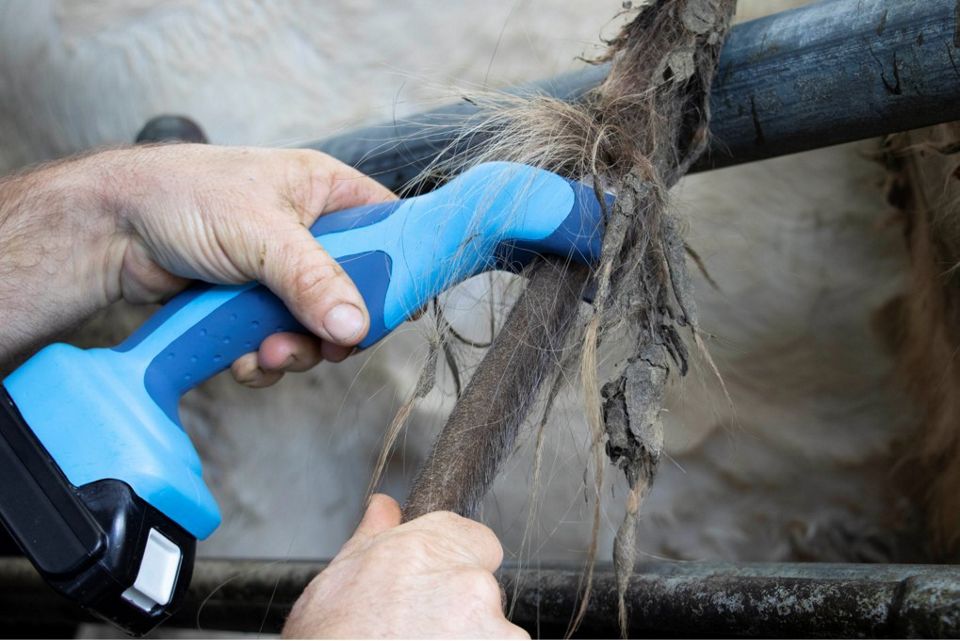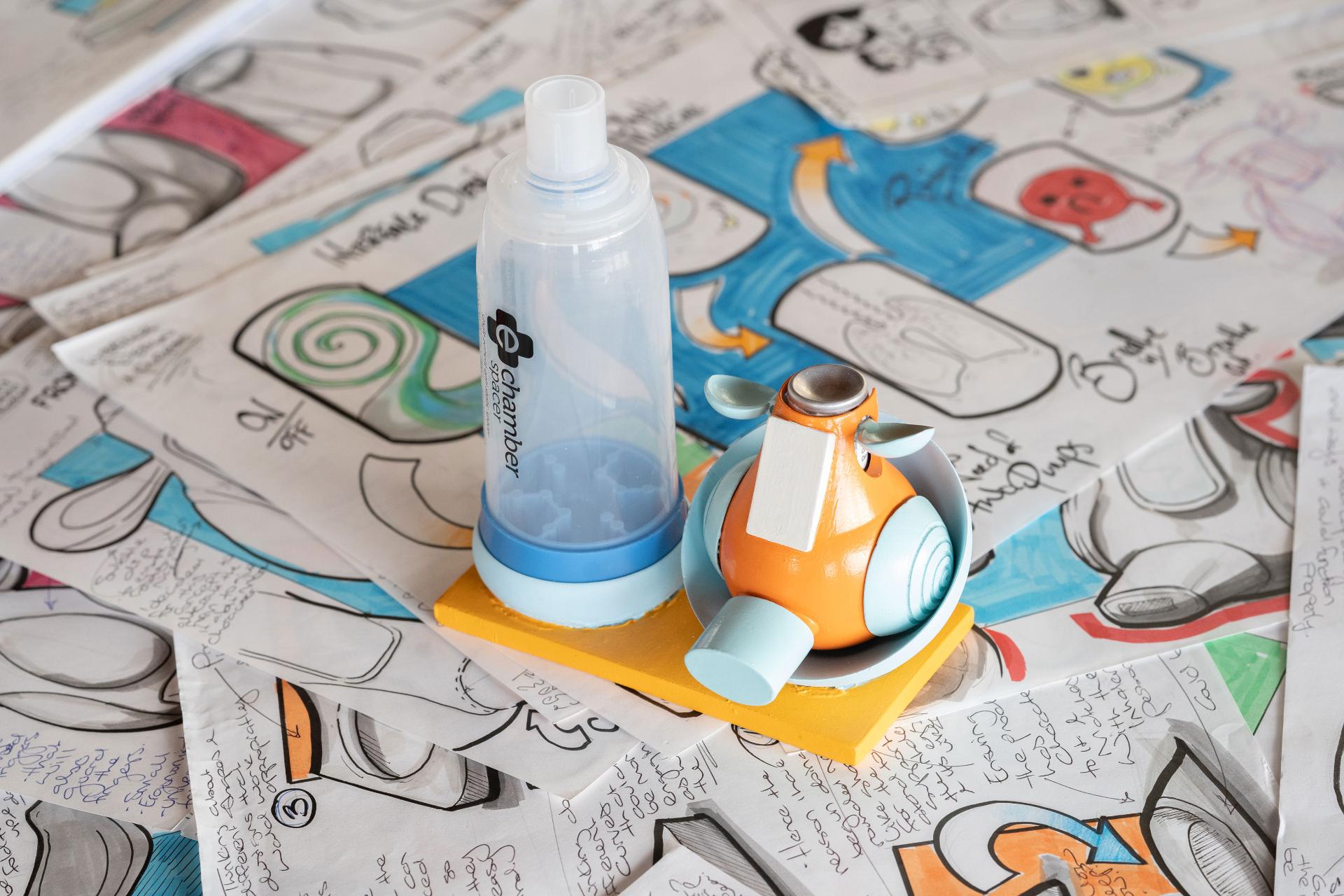
New Zealand invention a step in the right direction for sustainability
Massey University student crowned James Dyson Award National Winner
17 September 2020

Addressing the global issue of waste from the footwear industry, this year’s national winner of the James Dyson Award is Voronoi Runners. Designed by Massey University student Rik Olthuis, Voronoi Runners are a pair of shoes that can be easily deconstructed, with every component and material able to be composted at the end of its life.
Largely inspired by other alternative environmentally friendly footwear, Rik explains that even sustainable footwear using recycled or biodegradable materials still involve the use of strong adhesives, joining plastics and polyurethane foam. Waste from the global footwear industry is increasing tenfold,1 however the industry has been slow to create better alternatives. Since 1950, the amount of footwear globally has increased from seven billion (one per person)2 to 23 billion (three per person),3 with little to no consideration for end of life management being taken.
Most shoes will end up in landfill with the average pair taking more than 50 years to fully decompose, leading footwear alone to represent 1.4% of global climate impacts.4 The Voronoi Runners offer fully biodegradable footwear, finding a solution to the large amounts of waste from the global footwear industry.
“Currently, footwear materials focus on performance, which is important, especially in runners. However, what isn’t being considered is what happens to the product once it’s no longer of use. The use of adhesives prevents the separation and treatment of materials at the end of the product’s lifecycle. I was inspired to design a sneaker using only biodegradable materials with no adhesives - leading the future of sustainable footwear,” explains Voronoi Runners designer, Rik.
The Invention
Rik developed a gelatine and glycerine-based recipe for biodegradable foam to replace the more traditional blown polyurethane. Natural ingredients were added to improve the strength, compression, and water resistance needed to make it suitable for footwear. Rik then created a Voronoi structure, 3D printed from a strong and flexible biodegradable filament used to form a skeleton for the sole and midsole of the shoe. The upper was cut from a Merino wool fabric with 3D printed details, printed heel and toe caps that are inserted with a plant fibre reinforcement and sewn shut before stitching onto the edge of the sole.“Entering the James Dyson Award is a great way to have your ideas and designs evaluated and brought in front of critical eyes, helping with the transition from idea to realistic opportunity. Taking student work and presenting it in a professional light is a difficult step and James Dyson helps bring a sense of support and community in New Zealand’s product design market,” says Rik.
This year, the three New Zealand judges included Founder & CEO of the Sustainable Business Network, Rachel Brown ONZM, Dr Michelle Dickinson and Engineer Sina Cotter Tait. The trio reviewed over 20 entries submitted from university students and graduates across the country, a record year for the number of New Zealand entries received, before selecting the New Zealand Winner and two Runners Up. As national winner of the James Dyson Award, Rik will receive NZ$3,500 to go towards his project, helping to test the strength and form of a biodegradable filament.
Commenting on the Voroni Runners, Rachel Brown ONZM says, “The fashion industry is hugely wasteful and has a long way to go in terms of its approach to sustainability. Therefore, I was really impressed by the holistic approach taken and the way Rik had thought about the full life cycle from its material choice and eliminating nasty adhesives, to production via 3D printing and then thinking through what happens to these shoes at the end of life. I would love for my sports mad son to be able to purchase a training shoe like this.”
“I really like the biomimetic approach Rik has taken with the idea to use gelatin in the foam as just one example of this. Allbirds has proven that there is a growing market for sustainability focussed product innovation so this could be the perfect time for this product,” adds Dr Michelle Dickinson.
The James Dyson Award National Runners Up
Runners up in this year’s competition include Massey University students, Lisa Newman with her design SWITCH, a portable hand tool to help maintain clean cattle tails, and Samantha Hughes, with her design Clean Catch, a paediatric urine sample collection device.All three finalists will move on to the international stage where a Top 20 will be selected by a panel of Dyson Engineers. The International Winner and Sustainability Winner will be handpicked by Sir James Dyson, with the International Winner receiving NZ$55,000 and NZ$9,500 for their university, and the Sustainability Winner receiving NZ$55,000, and announced on 19th November 2020.
Clean Catch
Problem: Pre-potty trained children and their parents are being left traumatised from catheterisation due to the lack of a non-invasive way to collect a sterile urine sample from children under two in a reliable, consistent and convenient manner.
Solution: Clean Catch allows a child in need of a urine sample to be placed on the seat and safely strapped in, while a sterile collection cup is placed in the cup mount and adjusted to the appropriate position for the child so that when the child urinates the cup can collect a 'flying stream sample' while shielded from any contaminating factors.

SWITCH
Problem: Many dairy farmers are still relying on old, bulky, time-consuming products to help trim the tails of cows for milking. Current solutions are not maximised for the health and wellbeing of the cows and the farmers.
Solution: SWITCH is a tailor-designed tool of circular clipper heads that hug the shape of the tail creating an easy, stress-free trim. Trimming helps maintain udder health and cleanliness, while still allowing the cow to have full use of her tail. The clipper blades are designed to mimic the shape of the tail, trimming more surface area than traditional flat clipper blades for a quick and efficient trim. The outer blade oscillates over the stationary blade reducing the risk of causing injury to the tail or yourself while trimming. SWITCH is also ergonomically designed to help reduce the risk of RSI found commonly among the aging farming population.

About the James Dyson Award
The competition is open to student and graduate (within four years) inventors with the ability and ambition to solve the problems of tomorrow. With students from 27 markets and regions now competing, the award is set to welcome new approaches to a broader range of global issues than ever before.The James Dyson Award forms part of a wider commitment by Sir James Dyson, to demonstrate the power of engineers to change the world. The Dyson Institute of Engineering and Technology, the James Dyson Foundation and James Dyson Award embody a vision to empower aspiring engineers, encouraging them to apply their theoretical knowledge and discover new ways to improve lives through technology and design engineering.
[1] Staikos, T., & Rahimifard, S. (2007) A Decision-Making Model for Waste Management in the Footwear Industry. International Journal of Production Research, vol. 45, 4403–22.
[2] Staikos & Rahimifard, 2007, Post Consumer Waste
[3] World Footwear, 2017
[4] ClimateWorks Foundation, 2018
ANZ Press Office
Email: aupressoffice@dyson.com
